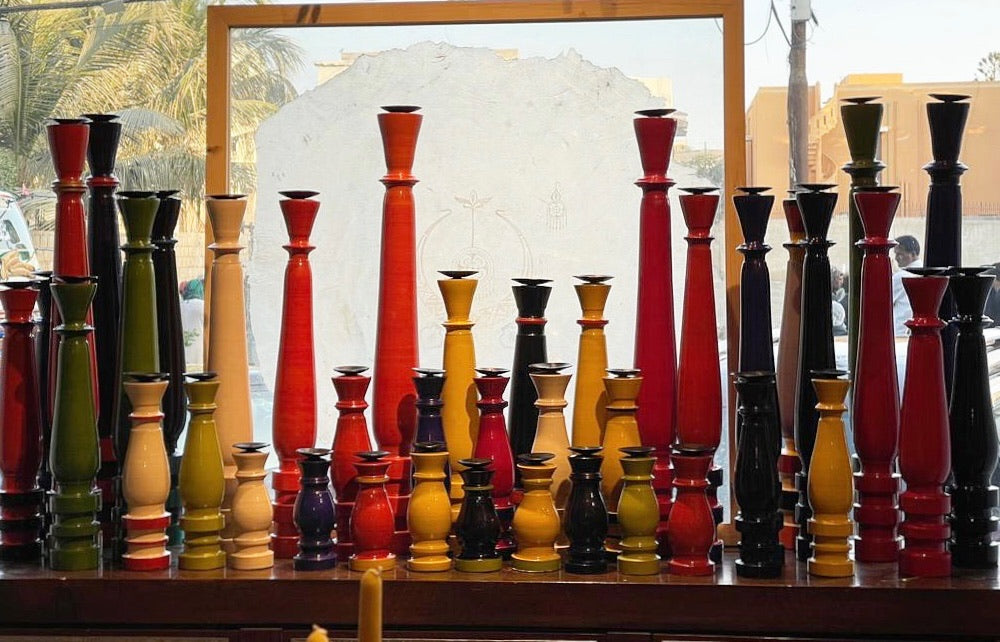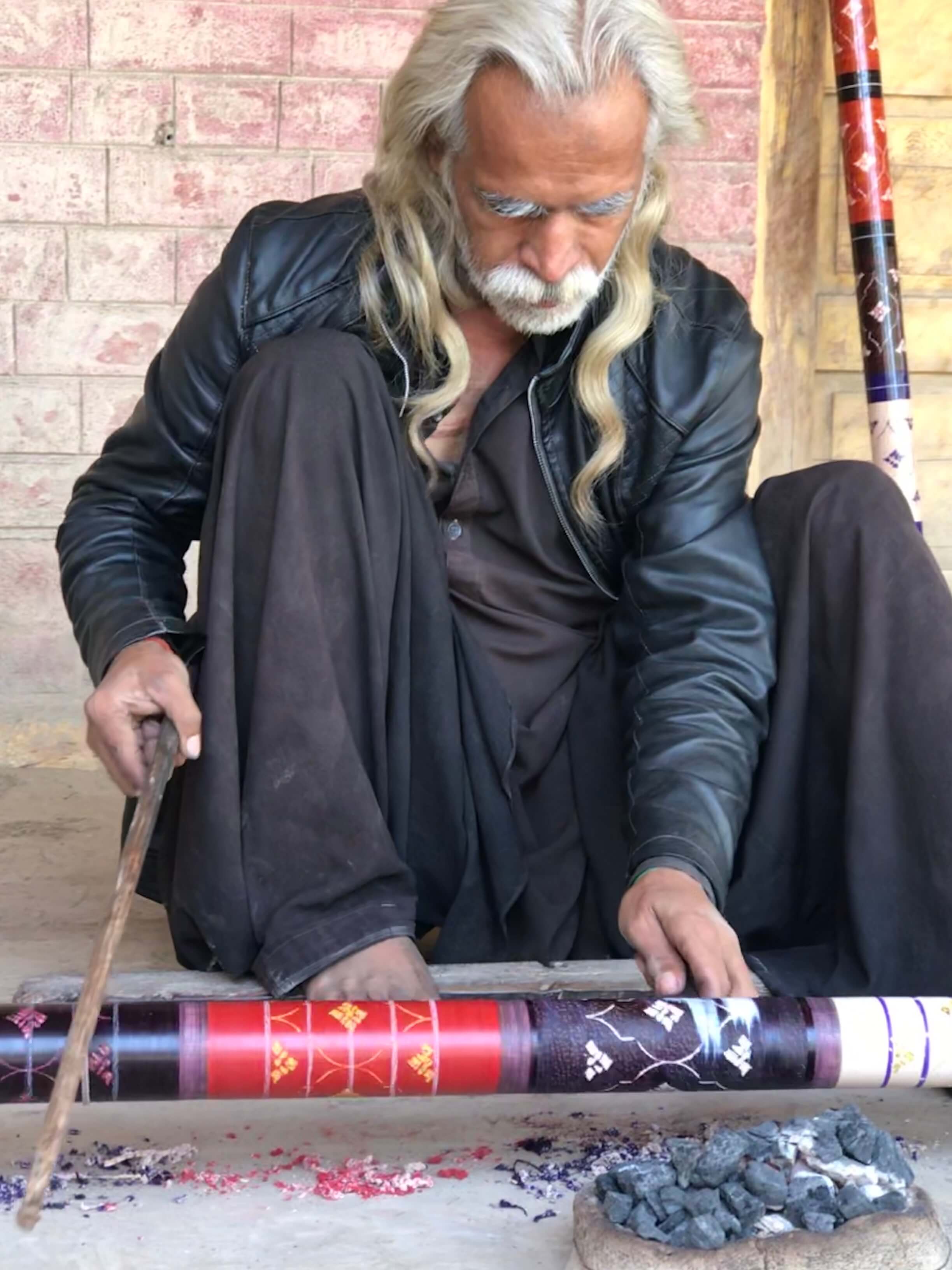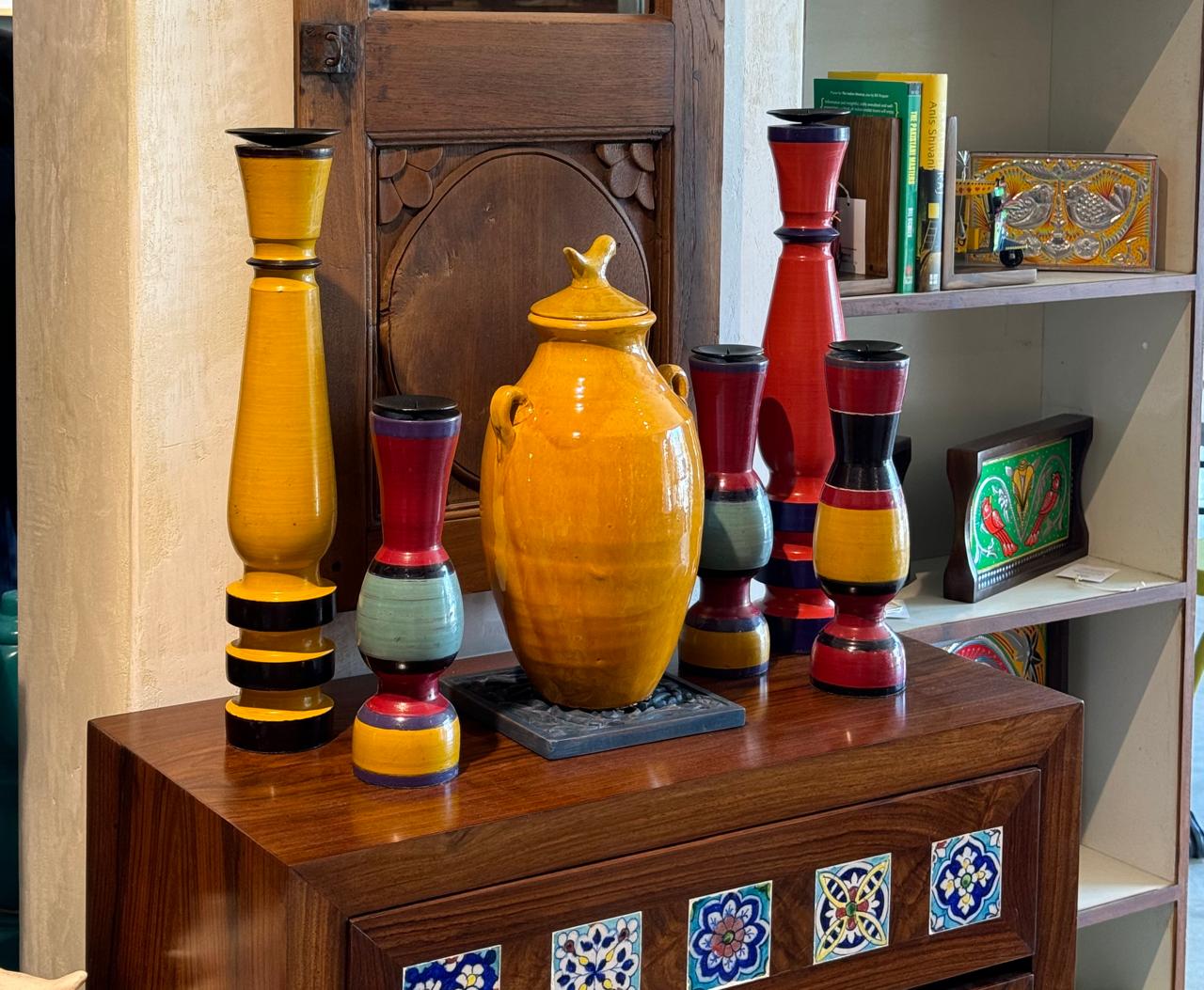Bhitshah, Sindh
Jhandri
Jhandri is a traditional woodturning craft practiced in various regions of Pakistan, particularly in areas known for their rich woodworking heritage, such as Chiniot. This craft involves shaping wood on a lathe to create finely detailed, symmetrical objects such as furniture components, decorative pieces, and household items. The term Jhandri refers specifically to the skilled technique of turning wood into elegant, functional forms through the use of hand-operated tools. Artisans who practice Jhandri are known for their ability to create smooth, polished surfaces with intricate patterns, making it a highly regarded craft in Pakistan.



Collapsible content
Craftsmanship and Techniques
1. Wood Selection
Jhandri artisans typically use high-quality woods such as sheesham (rosewood), teak, or walnut, which are ideal for woodturning due to their fine grain and strength. These woods are carefully selected to ensure they can withstand the precision of the turning process.
2. Woodturning on a Lathe
The wood is mounted on a lathe, where it spins at high speed while the artisan uses chisels and gouges to shape it. By applying controlled pressure, the artisan can create symmetrical forms, ranging from simple cylinders to more complex designs with grooves, ridges, and curves. This process requires a high degree of skill and focus to achieve smooth, balanced results.
3. Detailed Carving and Ornamentation
In some Jhandri pieces, artisans incorporate additional hand-carved detailing into the turned wood, adding decorative motifs like floral designs or geometric patterns. This combines the elegance of turned wood with the artistry of fine carving, resulting in pieces that are both functional and ornamental.
4. Polishing and Finishing
Once the wood is shaped and carved, it is carefully sanded and polished to enhance the grain and give the piece a rich, smooth finish. The final product often has a gleaming, natural luster, which highlights the wood’s natural beauty and the artisan’s craftsmanship.
Cultural and Historical Significance
Jhandri is an essential part of Pakistan’s woodworking tradition, especially in regions like Chiniot, known for its master woodworkers. The craft is often used to create furniture components such as chair legs, table bases, and bedposts, as well as smaller decorative items like vases, candle holders, and spindles. These pieces are often passed down through generations, symbolizing the continuity of artisanal heritage and craftsmanship. In rural areas, Jhandri work is also tied to traditional household practices, where hand-turned objects are used in daily life.
Modern Relevance
Today, Jhandri continues to be valued for its timeless beauty and artisanal quality. Modern designers and homeowners appreciate the clean lines and intricate details of Jhandri-turned wood in furniture, decorative items, and home accents. The craft’s emphasis on natural materials and handmade precision resonates with those seeking sustainable, handcrafted products. Whether used in traditional settings or incorporated into contemporary interior design, Jhandri remains a highly respected and sought-after craft.
Shop Jhandri products
-
Example product title
Regular price Rs. 20Regular priceUnit price / per -
Example product title
Regular price Rs. 20Regular priceUnit price / per -
Example product title
Regular price Rs. 20Regular priceUnit price / per -
Example product title
Regular price Rs. 20Regular priceUnit price / per
